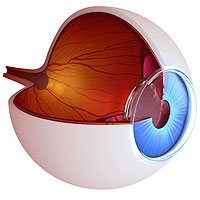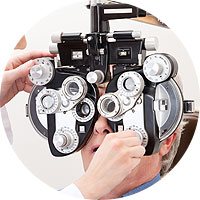If you’re considering laser eye surgery, it’s important to know that LASIK isn’t the only option available. There are many alternative procedures that can provide excellent results that might be better for you than LASIK.
The type of procedure that is right for you can depend on many different factors, including specific attributes of your eyes, such as how thin your corneas are. Understanding the various options can help you make an informed decision about which procedure is right for you.
Keep reading to learn three LASIK alternatives to consider!
Who is a Good Candidate For LASIK?

LASIK is a very popular choice for laser vision correction. However, it’s not right for everyone.
Good candidates for LASIK:
- Are 18 years or older
- Have a stable vision prescription for at least a year
- Have adequate corneal thickness
- Don’t have certain eye conditions like severe dry eye or glaucoma
- Are not pregnant or nursing
- Have realistic expectations about the procedure’s outcomes
What Happens if I’m Not a Good Candidate For LASIK?
The only way to know for sure whether or not you are a good candidate for LASIK is to visit your eye doctor at Eye Care Specialists for a consultation. During this appointment, they will talk to you about your vision goals and examine your eyes.
If you’re not a good candidate for LASIK, don’t worry. There are several alternative procedures that can still help improve your vision.
Your eye doctor can recommend the best option based on your specific needs and eye health.
4 LASIK Alternatives
It’s important to understand that each of these procedures has its own benefits and considerations. While they all aim to correct vision problems, they use different techniques and may be more suitable for certain eye conditions or situations.
EVO ICL

EVO ICL is a vision correction procedure ideal for those with moderate to high myopia, even if they have thin corneas or dry eyes. Unlike laser-based surgeries, EVO ICL doesn’t remove corneal tissue.
Instead, a biocompatible collamer lens is implanted behind the iris and in front of the natural lens. This procedure can correct a wide range of nearsightedness and offers quick visual recovery.
One of its key advantages is its reversibility. The implanted lens can be removed or replaced if needed.
EVO ICL is particularly beneficial for patients who aren’t suitable candidates for LASIK due to high prescriptions or corneal issues, providing them with a viable alternative for achieving clearer vision.
PRK
PRK is one of the earliest forms of laser eye surgery and remains a valuable alternative to LASIK. In this procedure, the outer layer of the cornea is completely removed, allowing direct reshaping of the underlying corneal tissue with a laser.
PRK is particularly suitable for patients with thin corneas or minor corneal scars that might preclude them from LASIK. While it offers similar vision correction results to LASIK, PRK typically involves a longer recovery period.
However, it may result in less risk of dry eye syndrome post-surgery and eliminates flap-related complications. For those who often participate in contact sports or high-impact activities, PRK can be a great option due to its flapless nature, providing improved vision without the potential risks associated with a corneal flap.
Refractive Lens Exchange
Refractive lens exchange is another LASIK alternative that can help those that don’t qualify for traditional corrective surgery. A laser is used to remove the natural lens so it can be replaced with an artificial IntraOcular lens.

Once completed, the eye’s ability to focus improves. This procedure corrects farsightedness, nearsightedness, and astigmatism with very excellent results.
In fact, the results seem to last longer than other types of laser eye surgeries. This is due to the artificial lens staying clear and never aging.
So, if you choose refractive lens exchange, also known as clear lens exchange, you will not have to worry about developing cataracts later on in life.
Overall, these procedures work well for people with moderate to severe vision issues. They also work well for the people that don’t qualify for traditional surgery.
With the existence of these methods, more people are able to experience the benefits of vision correction surgery, such as not having to deal with corrective lenses and the ongoing cost.
Are you interested in learning more about LASIK alternatives? Schedule an appointment at Eye Care Specialists in Kingston, PA, today!

















